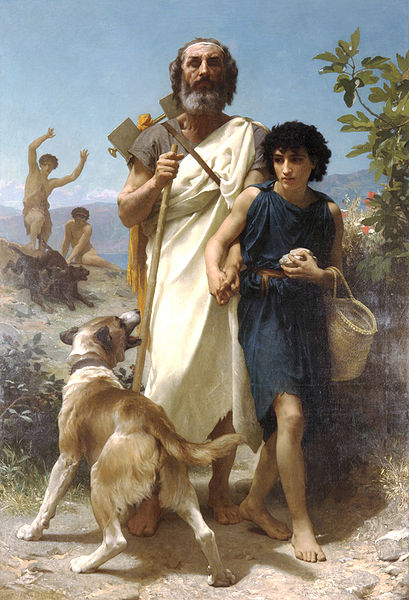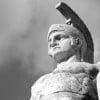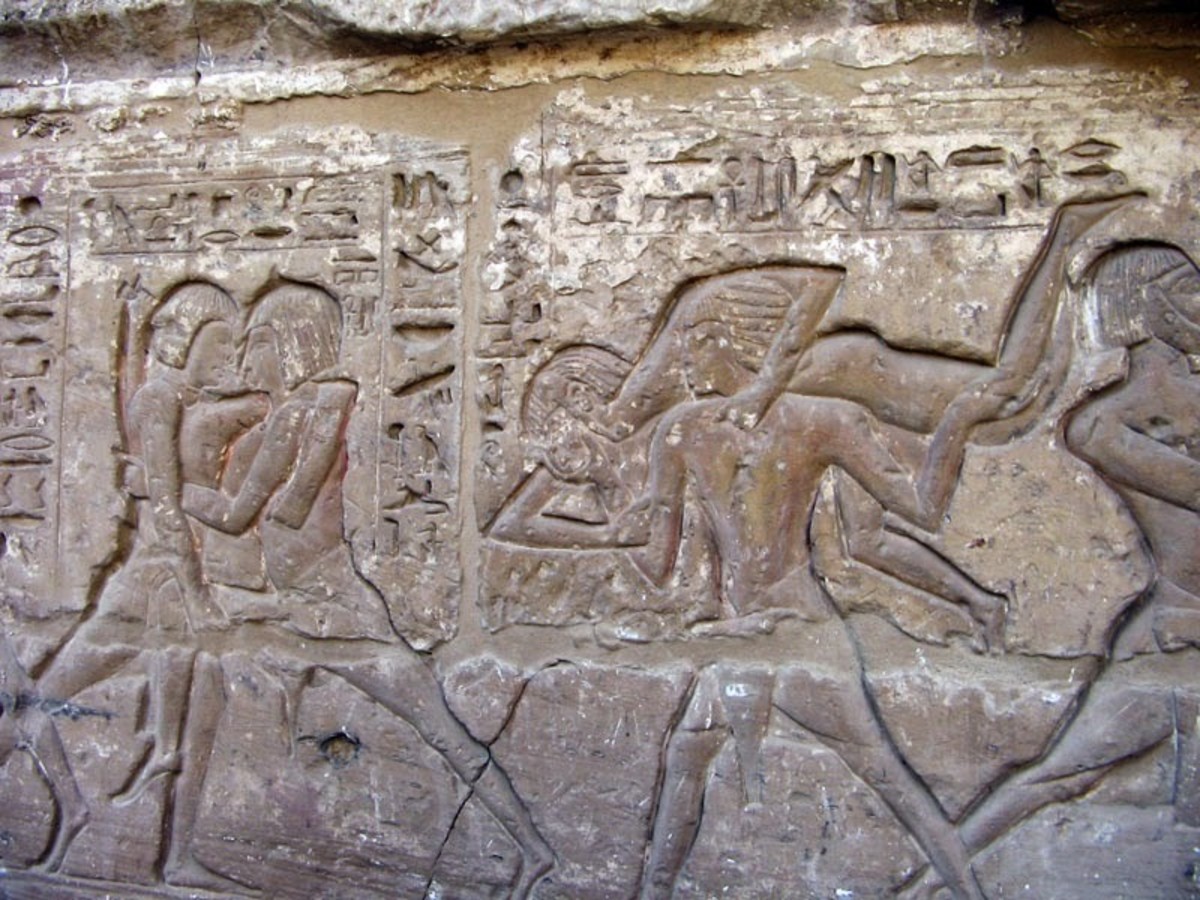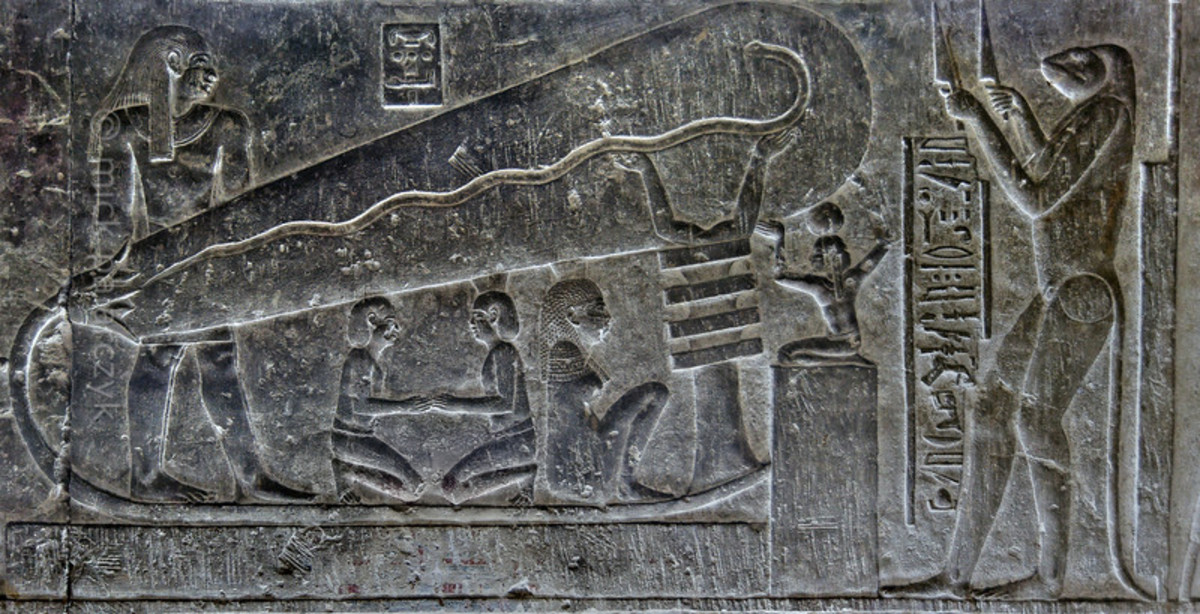Homer
Homer ancient Greek epic poet. Traditionally said to be the author of the Iliad and the Odyssey. Lived probably before 700 B.C.
Homer is the earliest known poet in European literature. His Iliad and Odyssey are among the greatest masterpieces ever written, and they set the standard by which all later epic poetry has been judged. They are heroic, swift-moving tales of adventure, with vividly drawn characters taken from ancient Greek legend. Homer's poetic style is a rare combination of simplicity, rapid movement, and loftiness of tone. It has seldom been equaled in any language.
The works of Homer occupied a position of authority in ancient Greece similar to that of the Bible in Christian societies. Homer's epics were regarded as the fountainhead of religion, morals, literature, and rhetoric, and they were studied wherever there were Greeks. The poet himself was venerated for his artistry and wisdom, and his poems were often memorized, quoted, and imitated. Plato called Homer "the best and most divine of poets".

Life
No certain facts about Homer's life are available. Seven ancient cities claimed to be his birthplace. Of these, Chios and Smyrna (now Izmir) are the most likely. The date of Homer's lifetime was placed by ancient authorities anywhere from the 12th century B.C. to the 7th century B.C. Modern scholars generally place him in the 8th century B.C. According to tradition, Homer was blind, but there is no real proof of this. In fact, his expert handling of visual detail in the poems indicates the opposite. He is said to have died on the island of Ios, but there is no conclusive evidence.
The Epic Tradition
Homer relied on a wealth of traditional material for both style and subject matter. His stories were taken directly from Greek heroic legend and may even have been adapted from works by earlier poets. It is known, for example, that for many generations before Homer there was a class of professional epic poets, or minstrels, who composed and recited epic poems at the homes of aristocrats and even before the public.
These bards appear to have handed down their poems and techniques by word of mouth from Mycenaean times to that of Homer. For example, Homer's poems include reliable information about places and things that ceased to exist after the almost total destruction of Mycenaean civilization in about 1100 B.C. Some authorities believe that such knowledge of the Mycenaean period could have been preserved only through an oral epic tradition.
Another argument in favor of an epic tradition that preceded Homer is his language, which is a unique combination of three Greek dialects and contains many words that were out of use by his time. The language of Homer was never spoken in conversation but was an artificial literary language, apparently a development of the epic tradition. Homer's skillful use of the dactylic hexameter as a metrical form also suggests that it had been employed by earlier poets. He could scarcely have achieved such perfection in this meter if he had been the first poet to use it.
The Homeric Question
The lack of reliable information has led some scholars to deny Homer's existence. The most famous statement of this point of view was made by the German scholar Friedrich Wolf in 1795. Wolf asserted that the Iliad and the Odyssey in their present form were not composed by one man. Rather, he argued, they were the products of a group of men working under the orders of the Athenian tyrant Pisistratus in the 6th century B.C. According to Wolf, the two epics were pieced together from many shorter, earlier poems by various authors.
According to another theory the Iliad and the Odyssey were composed by two different poets. Modern scholars, however, tend to believe that a single poet wrote the bulk of the two epics and that only minor additions and changes were made by other writers. In support of this view, scholars point out the consistency of character development and the remarkable unity of structure in both epics. The similarities between the two poems are greater than the differences.
Influence of Homer
Despite Homer's indebtedness to tradition, he was in many ways an original writer. His portrayal of character, construction of plot, interpretation of events, and amplification of traditional material are believed to be his own contributions. The poems of Homer were meant to be heard, and although the art of writing was known in Greece long before 700 B.C., his style was especially suited for oral recitation. However, because of the great length of both the Iliad and the Odyssey, they were probably recited in their entirety only on special occasions.
Homer remains one of the most widely read authors in Western literature. His work greatly influenced the Latin writer Virgil, whose Aeneid was modeled on both the Iliad and the Odyssey. Through Virgil, Homer indirectly influenced writers of Renaissance epics. Perhaps the most famous English translations of Homer are those by George Chapman in the 17th century and by Alexander Pope in the 18th century.
This content is accurate and true to the best of the author’s knowledge and is not meant to substitute for formal and individualized advice from a qualified professional.
© 2009 Historia





